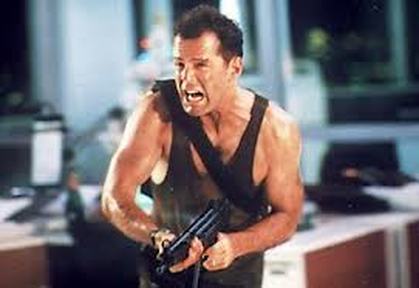A good character is memorable. And unique. And complex and interesting. (It sounds obvious when you put it that way.) Here's the thing though... Most screenwriters don't know the fundamentals of creating compelling characters. This article will teach you how to write a compelling protagonist in your screenplay. Writers that know how to interpret notes are easy to work with. That translates into more work, more money, and more movies being made. But notes can be very difficult to understand. More often than not, they’re confusing and contradictory. The people giving the notes don’t necessarily even know what they mean. In this week’s article, we dive into five common screenplay notes, and what those notes might mean when it comes to the actual words on the page. We proceeded to list our movie titles and log lines from memory. Ouch. The producer thanked us for coming, got called away for a meeting and we never heard back. It took us a while to learn from that mistake. But over time we figured out how to pitch more effectively, thanks in large part to the lessons we learned watching ABC's "Shark Tank." If you’re a screenwriter, you may not know it yet, but you’re also a salesperson. You have to sell your work. To agents, producers and managers. Over and over and over again. So it’s a good idea to get as much practice pitching as you can. You’ve heard the advice before. Pitch to family, friends and strangers on the street. Another great option: Check out pitchfests. There are quite a few to choose from, but our favorite (if you couldn't tell by the title of this post) is the Great American PitchFest. The GAPF is an honest, straightforward event. We know the people that run it, we know their team, and we can vouch for what a valuable opportunity it is for screenwriters. The pitching experience alone is worth the money, even more so if you leave having made a deal. So keep reading to find out more about this year's event (including a discount code for Script Quack readers)...
If you know what to expect going into a partnership, and you know how to write as part of a team it can actually be a rewarding experience. Chelsea and I have been writing together for almost four years now, so this article comes from experience. Keep reading and you'll find out how to maximize your chance at success next time you try to write as part of a team. Are you stuck with the first draft of a script that you don’t know how to rewrite? We’ve all been there. It’s easy to tell when your script isn’t firing on all cylinders. But it can be difficult to diagnose exactly what’s wrong and figure out how to fix it. That’s why we’ve created this list of questions. Each question here will challenge you to look at your script in a new way, and help you identify the problem areas in your writing. These are the same questions we ask when we’re reading a client’s script and I’m confident they’ll help you attack your next rewrite effectively. Everybody likes to save money on their taxes. If you're a writer, here's what you can write off: Remember: We are script analysts, not tax professionals, so take all of this information with a grain of salt. Here's a big list of things writers can deduct from their taxes... Here are nine traits that you should develop and hone in order to succeed in screenwriting. Screenwriting is a competitive and exhausting field. The fact of the matter is that most writers never get to see their work produced. Even fewer writers find a way to make a living writing. But there are plenty of successful screenwriters. They all start out as just another nameless amateur face in the crowd. But they rise above, thanks in large part to the techniques and habits outlined below. After having read hundreds of scripts, I can confidently tell you that good character introductions are one of the main differences between amateur and professional screenplays. Good introductions create film legends. Bad introductions hurt good writing. So before you start your next script, take the time to learn from the masters. |







